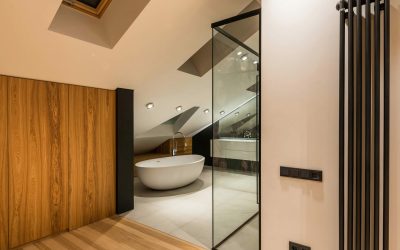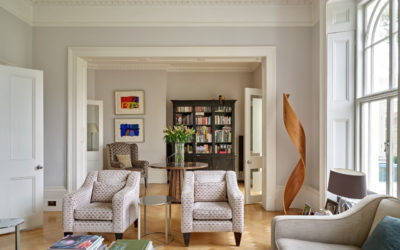Basement conversions have become increasingly popular in recent years, and that trend is expected to continue in 2024 as people look to create more liveable space in their homes. If your property already has a basement or cellar, then a conversion could transform this underground area into an extra bedroom, study, or something more.
However, before you start clearing out those dusty boxes of memorabilia and old gadgets, you should first check how suitable your basement is for conversion. Here are six questions you need to consider before starting on the process of a conversion – and if you are unsure, then the experts at Good London Builders are ready to discuss your options.
How big is the basement or cellar?
If you only have a small cellar or crawl space beneath your house, this is likely to be too small to convert into a liveable basement room. In general, you will need the space to provide at least 2.4m of head height, and with basement rooms tending to be darker, you will also probably want a larger space to stop it feeling claustrophobic.
What sort of foundations are beneath your London property?
When properties were originally built with basements, these rooms were most often created as storage rooms and as such may have relatively low ceilings. This means that to achieve the 2.4m of head height, you may need to dig down further.
Luckily, for homes built before 1960, which includes a large number of the properties across London, most have suspended timber floors. These are simple to remove and provide easy access to the ground below to excavate. However, more modern properties tend to have solid foundations, which can make digging down significantly more difficult and expensive.
Is your basement divided into a number of small rooms?
Depending on the original use-case for the basement of your property, the space may be divided up into a number of small rooms. If this is the case with your basement, you need to determine whether the separator walls are load-bearing or not. If the walls are load-bearing, then removing them could add significant expense to the basement conversion, as the builders would need to introduce alternative support structures. If you are unsure, call in an expert to check for you and to discuss your basement conversion options.
Is there easy access to your basement?
If you currently use your basement or cellar for storage, it will probably already have staircase access, which should be fine for a conversion. However, if your underground space does not currently have any useful form of access, you will need to consider the extra space required to add a staircase both in the basement itself, and above ground in your property.
Does your basement suffer from damp?
Many basements will have damp problems, and even small issues with water will need to be resolved before you can convert your basement into a liveable space. Damp proofing or “tanking” your basement can significantly add to the cost of a basement conversion, but it is a critical part of the process. Make sure to solve any such issues right at the start as damp problems left untreated will result in much higher expenses later down the line. If in doubt, call in a professional to check on the damp proofing required.
Does your basement enjoy any natural light?
As the space is subterranean, many basements to not receive much natural light. The basements of some London properties already have windows that provide both light and air circulation, but others will have no natural light at all.
If your basement does not currently have any natural light, you will need to determine how best to bring light into this space, such as with light wells, solar tubes, or sections of glass roofing. Alternatively, you might choose to use your basement for a purpose where natural light is less useful, such as an underground swimming pool or home cinema.
What if your basement is not suitable for a conversion?
If your basement is not suitable for conversion, this does not mean that you cannot add extra space to your home. You could choose to dig out a new basement, which can be an expensive option, with the space costing upwards of £3000 per square metre. Alternatively, you could instead opt for an above-ground extension, such as a side-return or wrap-around to provide you that lucrative extra floor space.
If you would like to discuss the best way to add extra floorspace to your London home, then call Good London Builders today on 0207 978 5097 or email info@goodlondonbuilders.com.



